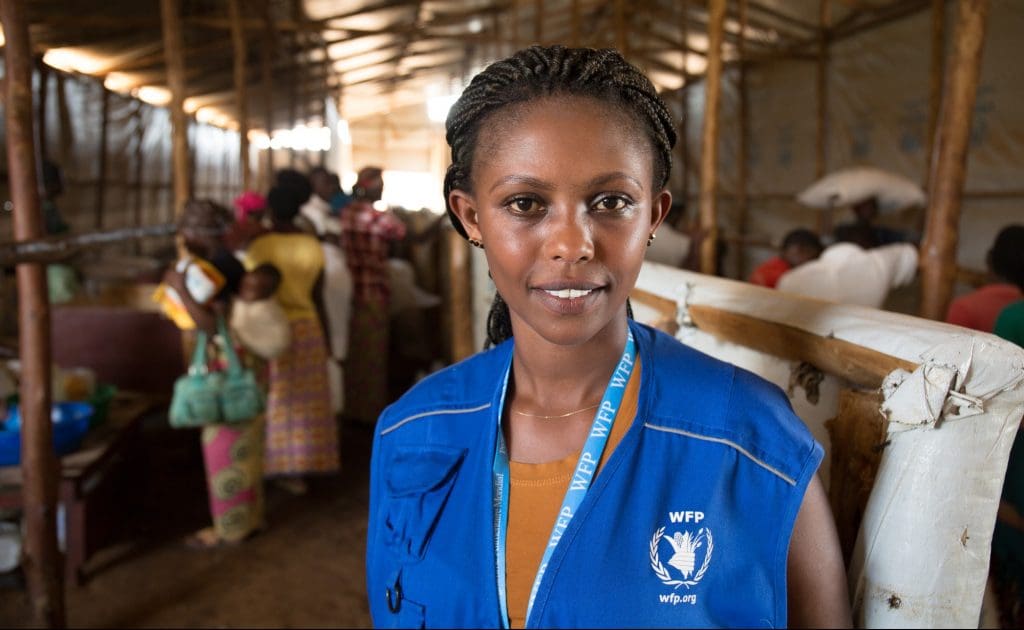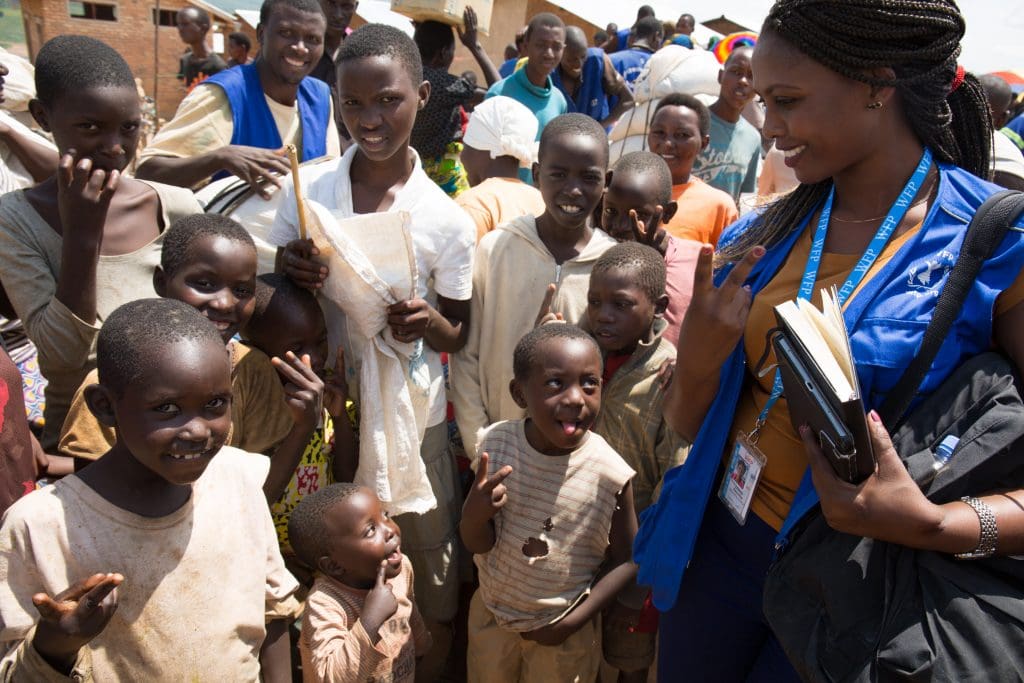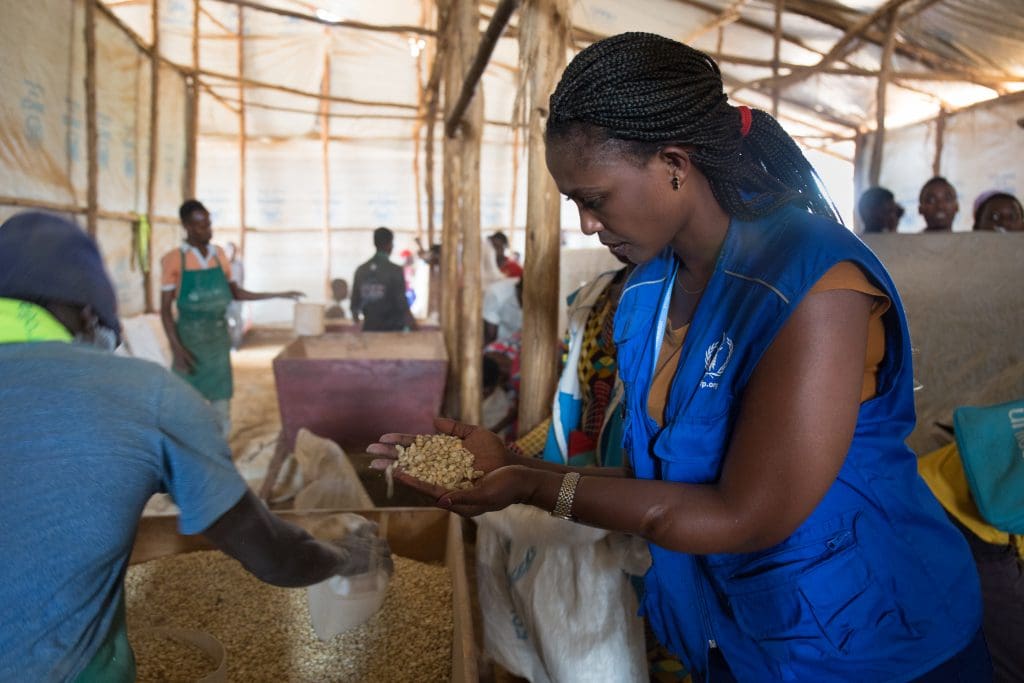Liberee’s Story: Rwandan Genocide Survivor Returns to Her WFP Roots

Liberee Kayumba is a survivor of the 1994 genocide against the Tutsi in Rwanda and has seen the horrors of war firsthand. As a child, Liberee received emergency nutritional support from the United Nations World Food Programme (WFP) where she is now a monitor helping Burundian refugees. We’re sharing Liberee’s story today in honor of the International Day of Commemoration and Dignity of the Victims of the Crime of Genocide and of the Prevention of this Crime.
Liberee was only 12 years old when she lost her parents and brothers in the genocide – a trauma that was further compounded by the immediate risk of starvation.
“I spent three months inside my house not knowing if I would survive until the next hour,” she says. “No one in my family could leave to work or farm (during the genocide), so accessing food was very difficult. We couldn’t have survived without humanitarian food assistance.”
Her experience inspired her to join the U.N. World Food Programme to help make a difference in the lives of others. Having once been a direct beneficiary of lifesaving food assistance from the U.N. World Food Programme, she now works as a monitoring officer for the organization in the Mahama Refugee Camp, a few miles from the border with Tanzania, which provides monthly food distributions to nearly 60,000 Burundian refugees.

The Mahama Camp provides monthly food distributions to nearly 60,000 Burundian refugees.
“Since I was a child, I wanted to help people in need,” she says. “It gives you another heart when you have seen people kill other people and witnessed all the suffering. The memories from the genocide and all those people in need of help motivated me (to join the U.N. World Food Programme).”
Liberee not only feels the pain and suffering of fellow refugees, but she also understands the fundamental role food plays for vulnerable communities fleeing from conflict.
“Food is always a lifesaving requirement during and following conflict,” says Liberee. “During and immediately after the genocide, food availability was every survivor’s prayer. When we received food assistance from the U.N. World Food Programme, we rejoiced. I will never forget the yellow corn meal, or pâte jaune, which we ate during this period. I will also never forget the ‘USA’-branded fortified oil and high-energy biscuits, all distributed by the U.N. World Food Programme to save our lives.”
In the wake of the genocide, the U.N. World Food Programme distributed emergency food assistance to people in need. The U.N. World Food Programme still provides lifesaving humanitarian food and nutrition assistance to over 100,000 refugees from neighboring Burundi and the Democratic Republic of Congo.
But the organization also provides technical assistance to the government and other stakeholders to strengthen food systems against increasing volatility and climate shocks. This ensures that affordable and sustainable healthy diets are available to all, and it helps improves farmers’ livelihoods throughout the entire food value chain. The U.N. World Food Programme also supports the government to scale-up nutritious and locally sourced school meals to students across Rwanda.

The U.N. World Food Programme provides food assistance, school meals and nutrition programs for children under five at the Mahama camp.
Speaking from experience, Liberee understands that “when a family’s food insecurity is addressed, tension is reduced.” Rwanda has achieved significant progress since the mid-nineties. The country has seen increased food production, better health and educational facilities and an improved quality of life.
“Peace and reconciliation prevail,” says Liberee. She adds: “To me, peace means freedom, tranquility and liberty. Peace is relief after going through a traumatizing situation or a conflict.”
“I am now at peace because the genocide stopped – I survived, I’m not afraid of being killed,” Liberee says. “I went on to complete my university education and can now provide access to food and good educational opportunities for my children. And as a U.N. World Food Programme employee, I feel very proud and motivated to do my work with enthusiasm, having in mind that my role is being recognized.”
This story was originally appeared on WFP’s Stories on December 14, 2020 and was written by Livia Hengel.




